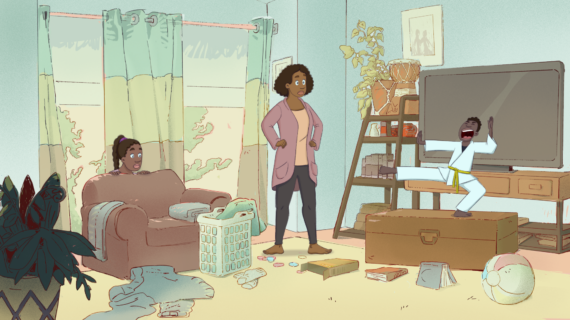Frederica Freyberg:
If Republicans win a veto-proof majority and Democrat Tony Evers wins re-election, his days of easily overturning bills would be over. But if Republican Tim Michels wins the election, what bills that Evers vetoed would likely become law? To look at these possible election outcomes, we turn to Shawn Johnson, capitol bureau chief for Wisconsin Public Radio. Nice to see you.
Shawn Johnson:
Good to see you.
Frederica Freyberg:
How does Governor Tony Evers’ veto record stack up in history?
Shawn Johnson:
It turns out that over a two-year session, Tony Evers has the record. Ever since Wisconsin has been a state. Going back to 1848, no governor has vetoed more bills in a two-year session than he has, 126. The next closest is like 90. Evers has it by a mile. If you are watching this session thinking, hey, it doesn’t look like they are getting along too well, you are factually, objectively correct.
Frederica Freyberg:
In these 126 vetoes, they covered everything from election law changes, COVID bills, K-12 law changes, legislation on guns, abortion, and even child labor laws. Which stand out most to you?
Shawn Johnson:
If you ask which stand out in terms of the campaign we are watching right now, I would say not very many of them, really. It feels like the candidates are running on themes that you see from Republicans and Democrats everywhere. Tim Michels is running against Evers as — saying he’s soft on crime, talking about his parole commission. Evers is talking about Tim Michels’ record on opposing abortion going back to when he was a Senate candidate in 2004. That’s what they are talking about. They are not really talking about these vetoes. That said, there is significant stuff in there. There is around 20 bills that Republicans passed related to election law changes, including a ban on private grants to help run elections. There are some pretty significant changes to education in Wisconsin proposed in these bills, including one that would lift all caps on the private school voucher program. No more enrollment caps, no more income limitations for the program. That would be a substantial change to Wisconsin law. So there is a lot in there in all of these bills. Some of it is getting talked about, just not as much as these larger themes you see.
Frederica Freyberg:
Do these bills that were vetoed represent a blueprint for Republicans?
Shawn Johnson:
In a way, I think they do. We just mentioned it’s often referred to by Tim Michels as this universal school choice plan. Historically in Wisconsin, the school choice lobby has kind of moved incrementally. Raise the income limitations for the choice program a little bit this session. A little bit this session. Expand it to Racine, then expand it statewide. Kind of step by step. This is like everything here. And I think by passing it, getting the legislature on record to support this bill, even if they knew Governor Evers was going to veto it, they now have Tim Michels talking about it. Everybody is on the record in Republican politics saying, “let’s do this.” It kind of does set a blueprint for a Republican governor should Tim Michels win to take some of these sweeping steps quickly.
Frederica Freyberg:
What else might be first out of the blocks?
Shawn Johnson:
I think those election bills would be coming pretty fast because the Republican base has said they want them. And I also think that there is probably not all the changes Republicans are going to be doing when it comes to election laws. There is going to be a push to possibly eliminate the Wisconsin Elections Commission. There a whole bunch there Republicans talked about in their primary campaign the Republican base wants. We have an election coming up in 2024 that’s going to be pretty closely watched here in Wisconsin.
Frederica Freyberg:
Would all of these bills conceivably come back or is with some of it just Republicans trying to draw the veto to message the base?
Shawn Johnson:
I think what you just said there is a very good possibility for some of them. I don’t know if you remember this but we had a talk like this in 2010, when you had a Democrat governor who vetoed Republican bills. Suddenly Republicans had all the power. We went through a list of what might they pass. They did pass some of that stuff that they had sent to get vetoed but not all of it. There was other stuff that was not on the list like, I don’t know, Act 10, right? So I don’t think you can look at this veto list and say well, that’s obviously everything they are going to do next year. There are some bills on there. For example one that would exempt all guns made in Wisconsin from any federal firearm laws. It would prohibit federal bans on assault weapons. That’s pretty broad stuff. They might pass it again but we just don’t know.
Frederica Freyberg:
It does suffice to say point to the high stakes for both sides in this election.
Shawn Johnson:
For sure.
Frederica Freyberg:
Shawn Johnson, thanks very much.
Shawn Johnson:
Thanks Fred.
Search Episodes
Related Stories from PBS Wisconsin's Blog

Donate to sign up. Activate and sign in to Passport. It's that easy to help PBS Wisconsin serve your community through media that educates, inspires, and entertains.
Make your membership gift today
Only for new users: Activate Passport using your code or email address
Already a member?
Look up my account
Need some help? Go to FAQ or visit PBS Passport Help
Need help accessing PBS Wisconsin anywhere?

Online Access | Platform & Device Access | Cable or Satellite Access | Over-The-Air Access
Visit Access Guide
Need help accessing PBS Wisconsin anywhere?

Visit Our
Live TV Access Guide
Online AccessPlatform & Device Access
Cable or Satellite Access
Over-The-Air Access
Visit Access Guide
 Passport
Passport


















Follow Us